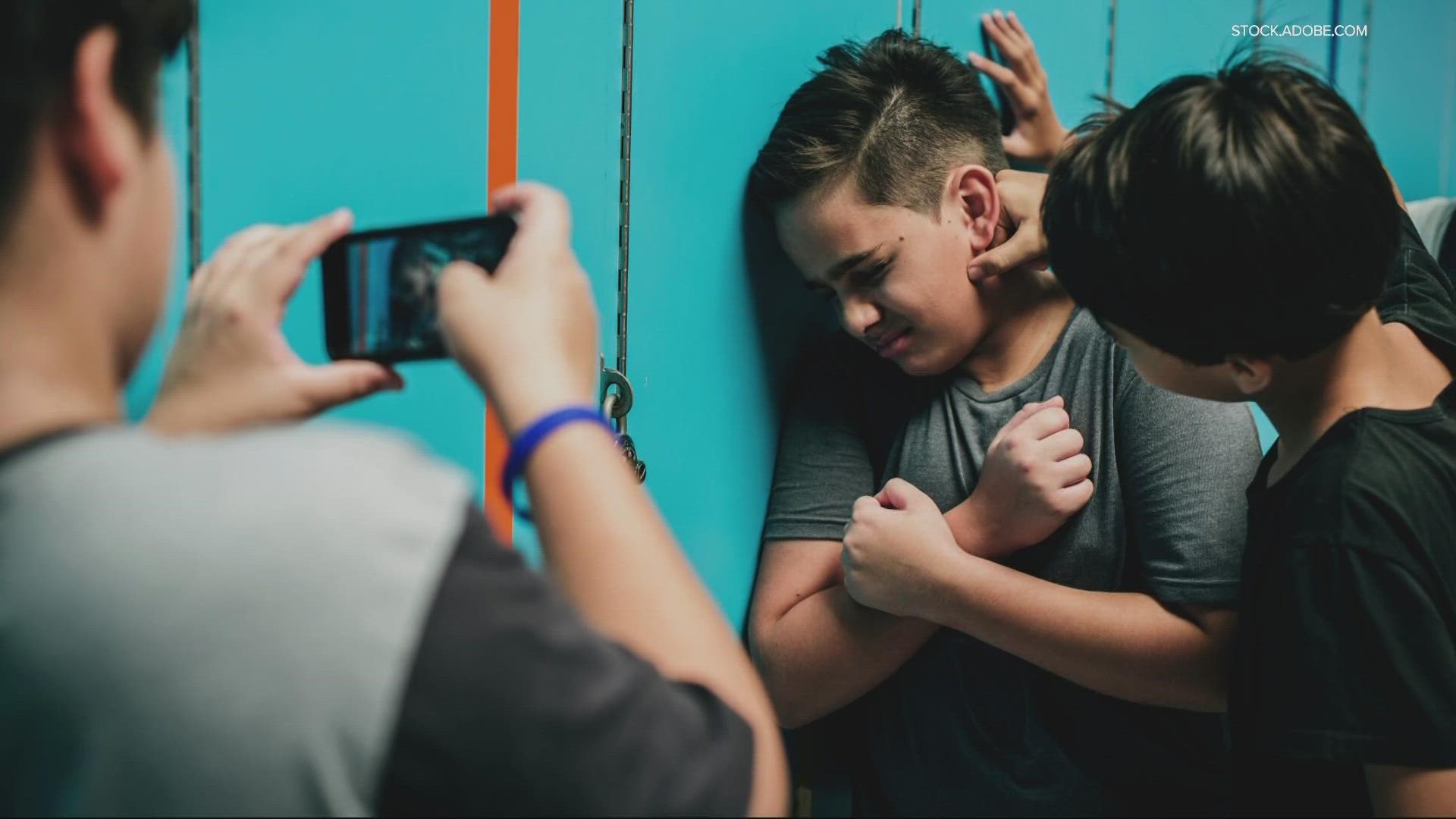OREGON, USA — Students are going back to school in person again this year, and while a lot of things have changed in the classroom environment, bullying unfortunately remains a concern.
About 20%, or one out of every five students, report being bullied, according to the National Center for Education Statistics. Bullying can reach all youth, including those being bullied, others who witness bullying, and the bullies themselves.
And while bullying that occurs on school property is still a concern, Dr. Mike Franz, senior medical director of behavioral health for Regence Blue Cross Blue Shield of Oregon, says he's become increasingly worried about bullying that happens online.
"Bullying now is almost synonymous with cyberbullying," Franz said. "Traditional bullying can still occur, but with the advent of social media and smartphones, unfortunately, we’re seeing about 20% of (students) experiencing cyberbullying in any given year."
RELATED: Oregon students talk facing mental health challenges, bullying while learning during a pandemic
Research suggests that kids and teens who are bullied over time are more likely to experience depression, anxiety, and low self-esteem.
Even being a bystander to bullying can have mental health impacts. Studies show that students who witness bullying experience increased anxiety and depression, regardless of whether they support the bully or the person being bullied.
The same study showed kids and teens who bully others are at higher risk for more intense anti-social behaviors like problems at school, substance use, and aggressive behavior.
"This is very real. I think number one is for parents to be aware of this issue, how prevalent it is, and that it’s very possible that over the course of their child’s academic career, they’re going to experience some cyberbullying," Franz said.
There are three main concerns when it comes to cyberbullying that differentiate it from the kind of traditional in-school bullying that many parents might imagine if they're thinking about bullying risks.
The first is that cyberbullying can be persistent, and not limited to specific incidents during the school day.
"It’s happening, potentially, 24/7," Franz said. "Social media runs 24/7 kids have access to their cell phones and other platforms throughout the day and sometimes throughout the night and it’s hard to escape," he said.
The second is that cyberbullying can be permanent.
"When things get posted online on a social media account, sometimes they’re there until it gets taken down, and it never gets taken down," Franz said. "So, it’s not a passing comment that gets overheard by one or two people – it’s there for anybody who has access to the social media site and that can be especially damaging."
And third: cyberbullying can be hard to notice.
"A kid yells something to another kid in the hallway – teachers, principals is going to hear it, kids are likely going to report it, but when it’s online it can be silent, especially to adults," Franz said. "Kids are using a lot of platforms that adults and teachers are not using. This can go sight unseen and we might miss it."
So, what can parents do?
Franz said they can start by making sure their children understand what bullying is, and that conversation can begin with some open-ended questions.
"As parents, we need to be aware this is happening. We need to notice. If we have any concern at all, we need to approach our child and have open-ended questions in a safe (environment), and probably even before that, be aware of how much social media access they have," he said.
Parents need to be proactive about what their child or teen is doing online. That means monitoring cell phone and social media usage, Franz said, using parental controls that are appropriate for a child’s age and maturity, and being open with children about expectations online.
Starting with strong parental oversight and controls can allow families to gradually work up to more online freedom and less monitoring.
"It is a brave new world out there, and we’ve got to interact with it, but if we do it on the front end – set appropriate expectations – I think then there’s a way to have a pathway that makes sense," Franz said.
For parents of children who are being bullied, Franz suggests getting the student's school involved. If parents notice behavioral changes in their kid or teen, it's important for them to remember to keep communication open and reach out for help.
"Sleep, appetite, academic productivity, socialization or the lack thereof, then we need to think about getting them connected clinically, again, starting with primary care," Franz said.
For more information on the signs and impacts of bullying and how to prevent it, visit www.stopbullying.gov.

